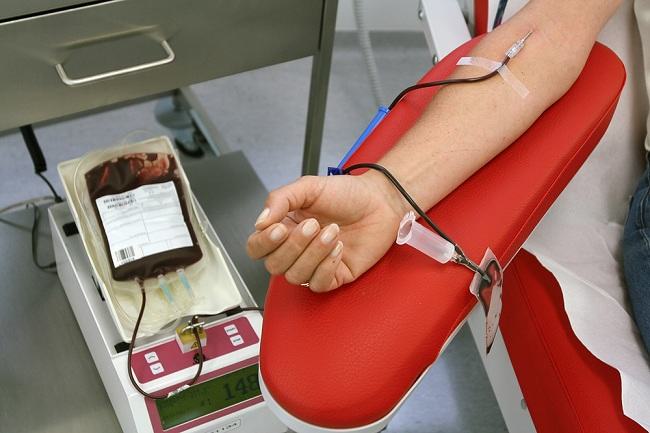Alteplase is a medication used to break up blood clots. Blood clots that clog arteries are often the cause of heart attacks and strokes.Alteplase is available in injectable form and should only be used under a doctor's prescription.
Alteplase is a fibrinolytic or thrombolytic class of drugs. This drug works by activating plasminogen to break down fibrin in blood clots. This drug can be used to break up blood clots in patients with a heart attack, stroke, or pulmonary embolism.

alteplase trademark:Actilyse
What is Alteplase?
| group | Fibrinolytic |
| Category | Prescription drugs |
| Benefit | Break up blood clots in patients with heart attack, stroke, or pulmonary embolism |
| Used by | Mature |
| Alteplase for pregnant and lactating women | Category C:Animal studies have shown adverse effects on the fetus, but there are no controlled studies in pregnant women. Drugs should only be used if the expected benefit outweighs the risk to the fetus. It is not known whether alteplase can be absorbed through breast milk or not. If you are breastfeeding, do not use this medicine without telling your doctor. |
| Drug form | Inject |
Warning Before Using Alteplase:
- Tell your doctor about your history of allergies, alteplase should not be used in patients with a history of allergy to this drug.
- Alteplase should not be used in patients with active bleeding, brain tumors, head injuries, brain aneurysms, heart infections, liver failure, active hepatitis, or uncontrolled high blood pressure.
- Tell your doctor if you have ever had hypertension, stroke, heart disease, diabetes, liver disease, kidney disease, or had surgery in the past 3 months.
- Consult the use of alteplase in patients older than 75 years, as it is often associated with an increased risk of bleeding within the brain (intracranial).
- Tell your doctor if you are pregnant, breastfeeding, or planning a pregnancy.
- Tell your doctor if you are taking any medicines, including supplements, or herbal products.
- See your doctor right away if you have an allergic reaction or overdose after using this medicine.
Alteplase Dosage and Rules
Alteplase is available as an injection. Alteplase injection will be done through a vein or IV / intravenously. The effectiveness, dosage, and duration of use of alteplase will be determined by the patient's condition.
The following is the distribution of alteplase doses based on the type of disease you want to treat:
Condition: Acute myocardial infarction
- Adult weighing >65 kg: 15 mg bolus initially, then followed by 50 mg by infusion over 30 minutes, and followed by 35 mg by infusion over 1 hour.
Maximum dose: 100 mg.
- Adult weighing 65 kg: 15 mg initial bolus, followed by 0.75 mg/kg by infusion over 30 minutes, followed by 0.5 mg/kg by infusion over 1 hour.
Maximum dose: 100 mg.
Condition: Acute massive pulmonary embolism
- Mature: An initial 10 mg bolus given over 1–2 minutes, then followed by 90 mg by infusion over 2 hours.
Maximum dose: 100 mg.
Condition:Acute ischemic stroke
- Mature: 0.9 mg/kg body weight within 60 hours. Administration may be started with a bolus of 10% of the total dose within 1 minute and the remainder continued by infusion over 60 minutes.
Maximum dose: 90 mg.
How to Use Alteplase Correctly
Alteplase is only available in injectable form. Therefore, this medicine should only be given by a doctor or by medical personnel under the supervision of a doctor. The dose of alteplase will be given according to the patient's condition. To get the best results, the use of alteplase will be closely monitored by a doctor.
This medicine should be stored at room temperature. Avoid exposure to direct sunlight and keep out of reach of children.
Alteplase Interactions with Other Drugs
There are several interactions that can occur when alteplase is used with other medications, including:
- Increased effectiveness of alteplase when used with defibrotide
- Decreased effectiveness of alteplase, when used with tranexamic acid drugs
- Increased risk of bleeding, if used with anticoagulant drugs, such as apixaban, warfarin, or heparin
- Increased anticoagulation effect which may increase the risk of bleeding if used with meloxicam, mefenamic acid, piroxicam, or ibuprofen
Alteplase Side Effects and Dangers
Some of the side effects that can appear after using alteplase are:
- Nauseous
- Throw up
- Dizzy
- Fever
Check with a doctor if the complaints mentioned above do not subside or are getting worse. See your doctor right away if you have an allergic reaction to a drug or experience more serious side effects, such as:
- Headache
- Bruises that occur suddenly
- Nosebleed
- Bleeding gums
- Bloody urine (hematuria)
- black stool (melena)
- Bleeding cough
- Changes in the color of the fingers and toes to dark
- Irregular heartbeat or arrhythmia
- Stomach ache
- Sweating
- muscle weakness
- Blurred vision
- Chest pain









